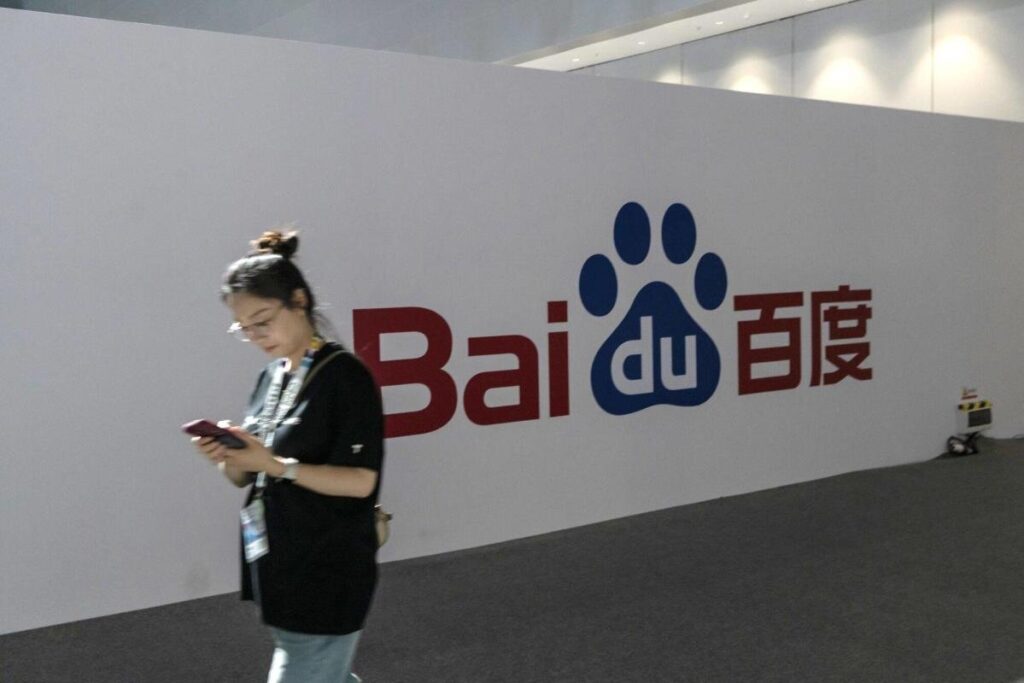In the ever-evolving arena of artificial intelligence, Chinese powerhouses Baidu and SenseTime, accompanied by the innovative start-up Zhipu AI, stand as the foremost providers of business-centric large language model (LLM) services in China. This assertion comes from a pioneering report by market research firm IDC, which underscores the relentless pursuit of generative AI integration within the tech landscape.
Baidu AI Cloud emerges as the leader in China’s industry-focused LLM market, commanding a significant 19.9 percent market share and yielding an impressive revenue of 350 million yuan (approximately US$49 million) in 2023. SenseTime follows closely, securing the second position with a 16 percent slice of the market. The start-up Zhipu AI also makes a notable appearance, although IDC has opted not to disclose its exact market share.
The latest trends and pressing questions in global technology find their answers in platforms like SCMP Knowledge, which offers meticulously curated content, from explainers and FAQs to in-depth analyses and infographics, brought to readers by an award-winning team.
According to IDC, the promise of generative AI has seen Chinese start-ups Baichuan and Hong Kong-listed 4Paradigm secure their spots as the fourth and fifth largest players in the sector, respectively. Baichuan and Zhipu AI, in particular, have earned their reputation as two of the mainland’s four “AI tigers,” showcasing their prowess in the field.
Reflecting on the market’s scope, IDC notes that China’s LLM market for business applications reached a valuation of 1.76 billion yuan last year. Despite being described as “not significant” due to the nascent stage of AI model investments and a prevailing wait-and-see sentiment among companies, LLMs form the backbone of generative AI services, akin to ChatGPT. IDC anticipates “multiple rounds of significant changes” in the market within the next two to three years.
Baidu’s response to the IDC report was swift and confident. In a blog post, the tech giant highlighted that over half of China’s state-owned enterprises leverage Baidu’s services for AI-driven innovation. Baidu’s Ernie LLM-based platform, Qianfan, currently caters to 150,000 clients and has facilitated the development of 55 original applications, a testament to its impact and reach.
The IDC data underscores the fierce competition among Chinese AI firms, all racing to integrate their generative AI solutions across various industries and sectors. According to a recent IDC report, ByteDance, the parent company of TikTok, along with e-commerce titan Alibaba Group Holding and SenseTime, are the leading providers of AI infrastructure-as-a-service in China. These firms focus on provisioning essential resources such as software, computing power, storage, and networking for enterprises developing LLM applications.
While consumer fervor for generative AI products seems to have leveled off, with Baidu’s Ernie Bot and ByteDance’s Doubao being the only GenAI mobile apps boasting over 10 million monthly active users as of June this year, there remains a broad user base. QuestMobile reported that 80 percent of GenAI apps in China have fewer than 500,000 monthly active users.
Despite mixed views on consumer adoption, some paint a bright future. Zhuang Rongwen, the director of the Cyberspace Administration of China, told Xinhua News Agency that over 600 million people in China are now users of LLMs, driving significant economic and societal progress.
Reflecting broader trends, an international survey conducted in July by US AI and analytics software company SAS and Coleman Parkes Research found that 83 percent of Chinese respondents had engaged with generative AI, markedly surpassing the global average of 54 percent.
This article originally appeared in the South China Morning Post (SCMP), a leading authority on reporting in China and Asia for over a century. For more stories like this, explore the SCMP app or visit SCMP’s Facebook and Twitter pages. Copyright © 2024 South China Morning Post Publishers Ltd. All rights reserved.


